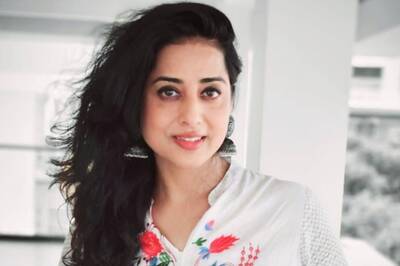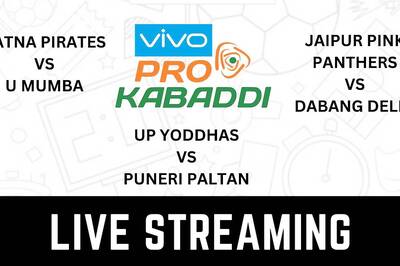
views
Organising a press conference, booking a suitable venue and getting a positive response from mainstream national media is quite cumbersome for the tribal people of this country. On August 8, on the eve of International Indigenous People’s Day, the people of Scheduled Tribes of India held a press conference that had no takers from mainstream media.
The United Nations, in 1994, had declared to celebrate 9th August as International Indigenous People’s Day. To commemorate the occasion this year, the tribals of central India called a press conference on 8th August at Constitution Club of India in New Delhi. But such was the neglect from mainstream media, that none of their representatives, even after one hour’s wait, turned up for the event. Compelled by the situation, the organisers commenced the conference and called it off immediately.
On the eve of 24th International Indigenous People’s Day, All Adivasi Delhi-NCR had called a press conference in the national capital to apprise people about the social, economic and cultural condition of tribals in India. Eminent personalities like JawaharLal Nehru University Teachers’ Association president Prof. Sonia Jharia, Former Planning Commission member C K Tirki, geoscientist of Govt. of India Dr. Ashok Baxla, Advocate Nicholas Barla, Social Scientist Dr. A. Benjamin and Research Scholar on Tribal Affairs Dr. Vincent Ekka were present. However, they were forced to call the event off in just few minutes.
It’s an irony that not a single reporter from so-called mainstream newspapers or television channels came to cover the conference called by tribals. But on the same day at the same time, as many as 17 cameras from different television channels were present just few meters away from Constitution Club attending another press conference at Press Club of India. Ten days ago, All Adivasi Delhi-NCR tried to book the Press Club for their press conference but their request was turned down.
Altogether, 90 media organisations were informed well in advance and e-mails were sent. The commencement of the press conference was delayed because some TV reporters told the organisers that they were on the way and would reach soon. But their journey never culminated and all of them failed to locate the well-known venue!
Dr. Ashok Baxla said that this is not the first time when mainstream media has ignored tribals. He enumerated several stories how media ignored agitations, demonstrations and other programmes. “Mainstream media doesn’t find anything attractive as we don’t carry a glamorous look,” he said.
Social scientist A. Benjamin said, that the government does not want to give tribals the status of Indigenous People as prescribed by the United Nations. “The government is behind this neglect by mainstream media. Even census data of tribals are whimsically manipulated.”
Former Planning Commission member C K Tirki expressed his anguish by saying that for mainstream media “we are like a poor cyclist on the road who is destined to be crushed.”
A cameraperson mustered some courage to stay for few minutes in this press conference but he too left the venue all too soon.
Prof. Sona Jharia expressed the helplessness of the tribal people and said that they are fighting for their own survival.
The presence of tribals, particularly of central India, in Indian mainstream media is almost negligible. It was evident from a survey carried out in 2006, that out of 20 top posts in the editorial department of national mainstream media, none was occupied by a person belonging to Scheduled Tribes.
Arun Oraon, a research scholar of JawaharLal Nehru University, recounted when he was advised to join Indian Army rather than doing journalism by an influential person of the editorial department of a news channel. After passing out from Indian Institute of Mass Communication (IIMC), a premier institute of journalism in the country, Arun failed to find a suitable job in any mainstream media organistion.
It’s a rare occasion in Delhi when the representative organisation of tribal people invites mainstream media to apprise about their plights and conditions. Even on the occasion of United Nations-sponsored International Indigenous People’s Day, the mainstream media disappointed them bitterly.
(The author is a senior journalist. Views expressed are personal.)




















Comments
0 comment